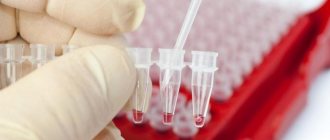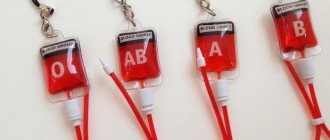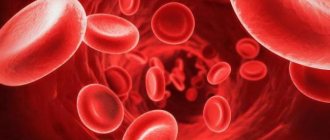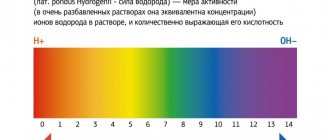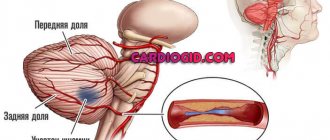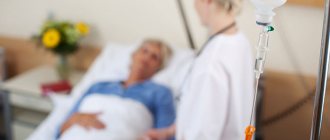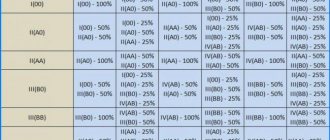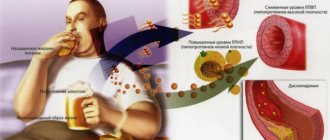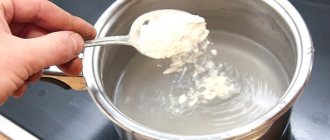Cardiomagnyl
This drug contains two active substances: magnesium hydroxide and acetylsalicylic acid. Aspirin inhibits platelet aggregation and blocks thromboxone synthesis. And magnesium hydroxide protects the mucous membranes of the gastrointestinal tract from the aggressive effects of acetylsalicylic acid. Cardiomagnyl is prescribed for the prevention of heart attack and stroke, thrombosis and angina. Cardiomagnyl is also taken by those patients who have already had a heart attack in order to prevent another. The medicine is sold without a prescription. The price of Cardiomagnyl is about 116 rubles for 30 tablets.
Cardiomagnyl
Nycomed Pharma, Germany
Preventive therapy for increased platelet aggregation in: thrombosis and embolism, coronary heart disease, myocardial infarction, ischemic strokes and cerebrovascular accidents, migraine.
Used for the prevention of thrombosis in cardiovascular surgery (in the postoperative period after coronary angioplasty, coronary artery bypass grafting). from 96
5.0 1 review
3901
- Like
- Write a review
A little about the thickness of blood and its rheological properties
But before we begin to describe disaggregants - these important prophylactic drugs that thin the blood and have saved hundreds of thousands of lives, you need to understand what “deterioration in fluidity” of blood is, and how such blood differs from “thick blood”.
There is such a simple laboratory indicator as hematocrit. Hematocrit is the percentage, volume ratio between the liquid part of the blood, or its plasma, and cells - formed elements. The greater this ratio, the thicker the blood. This density can occur due to an absolute factor, for example, excessive proliferation of all blood cells with a normal amount of plasma (polycythemia vera, or Vaquez disease).
But much more often, the hematocrit increases due to a decrease in the amount of liquid part of the blood and is called relative. For example, this is a severe intestinal infection with repeated diarrhea and vomiting when the blood thickens due to loss of fluid. Physiological dehydration also occurs. For example, prolonged hard physical labor in a dry, hot climate and intense sweating.
Does the blood thicken during these processes? Of course it thickens. Are blood thinners necessary in this case? Of course not needed. It is enough to restore the fluid balance that has been changed, and the blood will acquire the lost rheological properties. What drugs then are called agents that dilute it? These are drugs from two groups: anticoagulants and disaggregants.
- Anticoagulants
, or medications that inhibit blood clotting processes, are prescribed only by a doctor and are not sold in pharmacies without a prescription. These include some tablet drugs, for example Warfarin, Phenilin. But much more often, such drugs are used that are prescribed subcutaneously. This is heparin and its modifications, which belong to more modern low-molecular fractions, for example, Fraxiparin. Since these drugs can cause a significant number of side effects when self-medicated, these drugs will not be considered in this review. - Drugs from the group of disaggregants
(thinning) reduce the adhesion of blood cells to each other (reduce their aggregation, and, above all, platelets). They prevent the formation of so-called sludges, or columns of blood cells, which are the “germs” of blood clots. As is known, thrombosis underlies vascular accidents leading to death, such as heart attack and stroke.
Therefore, the general indications for the use of thinning agents will be an increased risk of thrombosis.
, the presence of progressive varicose veins, certain forms of hypertension with a high risk of heart attack and stroke, atherosclerosis and increased concentrations of cholesterol in the blood plasma. A separate indication for the prescription of antiplatelet agents is the general increased risk of heart attack and stroke in the population. Thus, the overwhelming majority of the male population of large cities in Russia after 45 years of age has such a risk, so if a man over 45 years of age has a tendency to sedentary work, is overweight, has bad habits and especially smoking, then the drug is indicated for him. disaggregants.
In world practice, there are not many drugs from this group that have proven effectiveness, but each of them has been tested for many years on tens of thousands of volunteers and patients with a wide variety of pathologies. They are included in the rating. It opens with such a well-known drug as acetylsalicylic acid, colloquially called by one of the oldest trade names - “Aspirin”.
Aegitromb
“Egithromb” is usually used to prevent complications from heart attack, stroke, arterial occlusive disease, acute coronary syndrome, angina pectoris and atrial fibrillation. The active ingredient of the drug is clopidogrel hydrosulfate. The drug binds perfectly to plasma proteins (94-98%). The therapeutic effect occurs within two hours after taking Egithromb. After 4-7 days of taking the drug, blood density indicators return to normal. The doctor may prescribe a blood thinner, depending on the severity of the disease, from several days to six months. The price of “Egitromba” is about 883 rubles for 28 tablets.
Aegitromb
Egis, Hungary
- prevention of atherothrombotic complications in adult patients with myocardial infarction (with a duration of several days to 35 days), ischemic stroke (with a duration of 7 days to 6 months) or occlusive peripheral artery disease;
— prevention of atherothrombotic complications in adult patients with acute coronary syndrome with ST segment elevation with the possibility of thrombolytic therapy (in combination with acetylsalicylic acid); - prevention of atherothrombotic complications in adult patients with acute coronary syndrome without ST segment elevation (unstable angina, myocardial infarction without Q wave), incl. in patients undergoing stenting (in combination with acetylsalicylic acid); - prevention of atherothrombotic and thromboembolic complications, including stroke, in atrial fibrillation in adult patients who have at least one risk factor for the development of vascular complications, who cannot take indirect anticoagulants and have a low risk of developing from 714
978
- Like
- Write a review
Top 15 Best Blood Thinning Medicines
In our rating, we name not only medications, but also the active ingredients that are included in their composition. The same drug may have many trade names.
Heparin sodium (standard)
This active substance is obtained from the lungs of cattle and mucous membranes of pigs. The action is based on blocking the thrombin enzyme, interaction with the plasmin protein and another enzyme - kallikrein. It can be used for both treatment and prevention.
The direct-acting drug is most effective when administered intravenously and begins to act instantly. That is why it is often used for exacerbations of diseases associated with blood thickening: angina pectoris, thrombophlebitis, thromboembolism of pulmonary and cerebral vessels. Heparin helps reduce blood viscosity and vascular permeability within a few minutes⁶.
Low molecular weight heparins
These active ingredients are obtained chemically. They affect blood clotting factors. Effective in small doses, they act quickly when administered subcutaneously into the abdominal tissue. They have predictable action.
Among the most common drugs with heparins:
- tinzaparin;
- enoxaparin;
- dalteparin;
- reviparin.
The first three are indicated for any situation where blood thinning is necessary. Reviparin is recommended to be taken for deep vein thrombosis in the legs and pulmonary embolism⁶.
Figure 2. Formation of blood clots in deep vein thrombosis and atherothrombosis. Images: Blausen.com staff (2014). "Medical gallery of Blausen Medical 2014". WikiJournal of Medicine 1 (2). DOI:10.15347/wjm/2014.010. ISSN 2002-4436 (CC BY 3.0)
Fondaparinux
Another synthetic drug of direct action, similar in action to heparins. However, it affects exclusively clotting factors, without affecting other enzymes, proteins, and blood cells. It is quickly and completely absorbed from the subcutaneous tissue, has a long-lasting effect, which allows you to get by with one subcutaneous injection per day. The drug is indicated for therapy in severe pathologies, in particular acute coronary syndrome⁶.
Warfarin
An indirect-acting drug slows down the blood clotting process. It is a vitamin K antagonist and interferes with the formation of its active form in the liver, which is involved in the production of the enzyme prothrombin.
Available in tablets and prescribed in courses. The action begins 3-5 days after the start of administration. This medicine has already become a classic for the prevention of thrombosis and thromboembolism. Prescribed for the treatment of coronary heart disease and peripheral artery thrombosis. Effective for recovery after myocardial infarction and vascular surgery¹.
Pradaxa
A direct-acting drug based on the active substance dabigatran etexilate. Inhibits thrombin activity and prevents the formation of blood clots. Available in tablet form, it works half an hour to an hour after taking it. Indicated for the prevention of venous thromboembolism in patients undergoing orthopedic surgery. It is also taken as a preventive measure to reduce the risk of stroke and complications from atrial fibrillation⁶.
How to determine blood density
This can only be done using laboratory analysis. If the blood is thicker than normal, then the number of red blood cells will be more than 5.6x10¹² cells/l in men and 5.1x10¹² in women. Hemoglobin in men will be above 165 g/l, in women - 145 g/l. Another important indicator - viscosity - is determined by viscometry. Problems are indicated by a result of more than 5.4 mPa-s in men and 4.9 in women.
Xarelto
The active substance, rivaroxaban, inhibits the blood clotting factor, the so-called factor Xa. This is a protein involved in the formation of prothrombin. Take medicine in tablets. The drug is effective for the prevention of atherothrombosis, venous thromboembolism, stroke and systemic embolism. It is prescribed to patients who have suffered acute coronary syndrome or have a history of atrial fibrillation⁷.
Anticoagulants must be prescribed by a doctor! Blood thinners should be taken only when indicated and after testing. Photo: konfeto4ka / freepik.com
Eliquis
The direct effect of the substance apixaban, which is included in the drug, is also based on the suppression of factor Xa and the process of platelet union. Taken in tablet form 1-2 times a day for the prevention of venous and systemic thromboembolism, strokes. The drug is effective in reducing the risk of complications in patients with atrial fibrillation⁷.
Edoxaban
Selectively suppresses factor Xa and prevents platelet aggregation, which reduces the risk of blood clots. Available in tablet form. Effective 1-2 hours after administration. Indicated once a day for the preventive treatment of strokes and systemic embolism. Used to treat pulmonary embolism, deep vein thrombosis¹.
Bevica
Based on the active substance betrixaban, a synthetic drug of direct action is produced that suppresses factor Xa. It belongs to the latest generation of anticoagulants. Doctors have proven its effectiveness for the prevention of thrombosis in patients who have undergone surgery to install prosthetic knee joints. It is also indicated for non-valvular atrial fibrillation¹. The drug is actively used in the USA and Europe, but has not yet been registered in the Russian Federation.
Brilinta
The active substance ticagrelor inhibits P2Y12 receptors, which are responsible, in particular, for the union of platelets and changes in their shape. It has a rapid onset of action - half an hour after oral administration. One of the drugs used to reduce the risk of blood clots in patients with COVID-19⁸. It is also prescribed for preventive purposes or for the recovery of patients with acute coronary syndrome, myocardial infarction, and stroke.
Various diseases can provoke blood thickening; the list is wide. Among the most common are pancreatitis, hepatitis, leukemia, thrombophilia, hemoblastosis, and liver cirrhosis. It is believed that women are at risk in the third trimester, when physiological viscosity levels increase in the body.
Effient
The action of the substance prasugrel, which is part of the drug, is aimed at suppressing ADP receptors. These are proteins that are embedded in the membrane of platelets and serve as “bridges” for their association into clots (thrombi). Taking the drug reduces the risk of complications (heart attack, stroke) in various atherosclerotic pathologies and acute coronary syndrome. Medicines are produced in the form of tablets for long-term use⁸.
Acetylsalicylic acid
A common drug used to reduce the risk of platelets pooling. Its peculiarity is that after taking the pill, the effect of the medicine lasts 4-7 days. Prescribed for the treatment of angina pectoris, as a prophylactic against heart attacks, secondary cerebral ischemia. Acid has a fairly aggressive effect on the gastrointestinal tract, so the preparations also include protective substances, for example, magnesium hydroxide.
Your doctor may recommend blood thinning products. Photos: freepik.com
Clopidogrel
Suppresses ADP and P2Y12 receptors, which are responsible for combining platelets into blood clots. Moreover, after taking the medicine, these blood cells remain immune to receptors throughout their entire existence (about 10 days). Effective in the prevention of secondary complications after a heart attack or stroke. The drug is prescribed during rehabilitation after heart surgery, for the treatment of acute coronary syndrome.
Dipyridamole
An angioprotector with a vasodilator effect, which, after administration, improves the speed of blood flow in the coronary vessels and reduces their resistance. It is also an immunomodulator - improves the production of interferons in the body. Helps improve venous outflow, prescribed for congestion in the lower extremities. Indicated as a prophylactic for circulatory disorders in the brain, at risk of developing coronary heart disease, arterial or venous thrombosis.
Pentoxifylline
Helps improve blood microcirculation, reduces the risk of platelets and red blood cells combining, increasing their elasticity. As a result of the drug's action, the volume of fibrinogen in the blood plasma, a protein involved in the blood clotting process, decreases. It becomes more liquid and moves better through the vessels. The medicine is prescribed for disorders of peripheral and cerebral circulation, encephalopathies, trophic ulcers against the background of problems with arterial/venous blood flow.
Chime
The active substance of the drug is dipyridamole. “Curantil” helps improve venous and placental outflow, stabilizes blood pressure, dilates blood vessels, improves blood density, etc. “Curantil” is also an excellent immunomodulator that is used to prevent ARVI and influenza. The price of Kurantil is about 590 rubles for 120 tablets.
Chime
Berlin-Chemie (Berlin-Chemie), Germany
The antiplatelet effect of Curantil is associated with its ability to reduce the reverse transport of adenosine into cells, which leads to its accumulation in the extracellular space.
The direct antiplatelet effect of Curantil lies in its ability to increase the antiplatelet ability of PGE1 and suppress the activity of phosphodiesterase in platelets, resulting in the accumulation of cyclic AMP, which has a direct vasodilatory effect on the arteries of the heart, and the accumulation of thromboxane A2 leads to an increase in the lifespan of platelets, due to their reduction aggregation. from 472
1.0 1 review
4949
- Like
- Write a review
Clinical manifestations
Developing leukopenia can cause unpleasant symptoms:
- weakness and fatigue;
- dizziness;
- signs of intoxication;
- feeling of lack of air;
- fever, increased body temperature;
- bloating;
- frequent and painful urination;
- joint and muscle pain, cramps.
In the absence of specific medical care, bacterial complications and exacerbation of chronic infections develop. Which necessitates the abolition of chemotherapy, and this, in turn, leads to a relapse of the tumor process.
Deplatte
The drug is prescribed for the prevention of ischemic stroke, heart attack, peripheral arterial occlusion, and atrial fibrillation. The active ingredient of the drug is clopidogrel. During treatment, doctors often use Deplatte together with acetylsalicylic acid to prevent the formation of blood clots in acute coronary syndrome. The price of “Deplatta” is about 439 rubles.
Deplatte
Torrent Pharmaceuticals, India
Prevention of thrombotic complications in patients with myocardial infarction, ischemic stroke or peripheral arterial occlusion.
In combination with acetylsalicylic acid for the prevention of thrombotic complications in acute coronary syndrome: with ST segment elevation with the possibility of thrombolytic therapy; without ST segment elevation (unstable angina, myocardial infarction without Q wave), incl. in patients undergoing stenting. Prevention of thrombotic and thromboembolic complications, including stroke, in atrial fibrillation (atrial fibrillation) in the presence of at least one risk factor for the development of vascular complications, the inability to take indirect anticoagulants and the presence of a low risk of bleeding (in combination with acetylsalicylic acid). from 449
313
- Like
- Write a review
Thinning agents
The most affordable ones today are drugs based on acetylsalicylic acid, better known as Aspirin. Such medications are common in pharmacies and cost little. Due to the fact that acetylsalicylic acid carries certain risks for the hematopoietic system and can cause gastric bleeding or ulcers, medicine has actively begun to work on the creation of drugs free from aspirin. Such dosage forms are available in pharmacies today. This group of drugs is divided into two subgroups
- antiplatelet agents that prevent blood cells from sticking together.
- anticoagulants, which prevent the formation of fibrin clots during coagulation.
Such drugs can be prescribed not only to older people to thin the blood, but also to pregnant women, in order to ensure the best blood flow between mother and fetus. A course of taking medications from this group saturates the blood with oxygen, which is very important for the developing fetus.
Trental
The main active ingredient of Trental is pentoxifyline. The drug reduces fibrinogen levels and leukocyte activity. "Trental" is prescribed for cerebral circulatory disorders, degenerative changes, diabetes, otosclerosis, poor blood circulation in the retina, trophic disorders and occlusive disease. For older people, this blood-thinning drug is prescribed for chronic peripheral circulatory disorders. The price of Trental is about 496 rubles for 60 tablets.
Trental
Sanofi, France
Trental is a vasodilating agent that improves the rheological properties of blood (fluidity) by affecting the pathologically altered deformability of red blood cells, inhibiting platelet aggregation and reducing increased blood viscosity.
from 128
1949
- Like
- Write a review
Why do you need to thin your blood?
Blood fluidity in medicine is called “rheology”. The rheological properties of blood depend on many parameters3. The main ones:
- hematocrit - the content of red cells;
- aggregation - the ability of platelets to clog wounds in tissues;
- plasma viscosity - determined by protein concentration;
- the deformability of erythrocytes is their ability to deliver nutrients throughout the vascular bed, down to small capillaries.
Figure 1. Vessel occlusion.
Image: Burgstedt / Depositphotos When all indicators are normal, blood circulates through the vessels without difficulty and provides oxygen and other substances to absolutely all parts of the body. If the density increases, the fluidity of the blood decreases. This phenomenon has several dangerous consequences⁵:
- when blood passes through the vessels, friction is created, due to which the vascular walls are gradually destroyed;
- it is more difficult for the heart muscle to “push” thickened blood through the vessels; due to excessive load, the heart tissue wears out faster;
- blood stagnation occurs (especially in the lower extremities), so tissues do not receive enough oxygen and nutrients;
- the risk of thrombosis in blood vessels increases due to the fact that platelets in thick blood more often collide with each other and “stick together” into clots - thrombi;
- broken blood clots are the most dangerous consequence, as they can clog large vessels, leading to severe illness or even death.
To eliminate these consequences or reduce their negative impact on the body, it is necessary to take anticoagulants.
Anticoagulants - only for their intended purpose!
“It is important to note that uncontrolled use of drugs in this group is contraindicated, since anticoagulants can reduce blood clotting ability, which increases the risk of hemorrhages. In addition, these drugs are not always suitable for people who have impaired kidney or liver function. And they are absolutely contraindicated for patients who have a stomach ulcer, Crohn’s disease, ulcerative colitis, arterial hypertension and some other pathologies.”
Kochenderfer Alexander Vladimirovich
expert
Federal State Budgetary Institution Federal Scientific Center FMBA of Russia, neurologist
Acetylsalicylic acid
Acetylsalicylic acid is the most inexpensive but effective drug that can be bought without a prescription. The medicine is prescribed to prevent blood clots. Acetylsalicylic acid is used to relieve pain, reduce fever and treat inflammatory processes. The drug is effective for varicose veins, headaches, pericarditis, arthritis, Kawasaki disease, fever, Kawasaki disease, as well as for the prevention of heart attacks and strokes. The price of acetylsalicylic acid is about 15 rubles for 20 tablets.
Acetylsalicylic acid
OJSC Pharmstandard-Leksredstva, Russia
Rheumatism, rheumatoid arthritis, infectious-allergic myocarditis;
fever in infectious and inflammatory diseases; pain syndrome of weak and moderate intensity of various origins (including neuralgia, myalgia, headache); prevention of thrombosis and embolism; primary and secondary prevention of myocardial infarction; prevention of ischemic cerebrovascular accidents. In clinical immunology and allergology: in gradually increasing doses for long-term “aspirin” desensitization and the formation of stable tolerance to NSAIDs in patients with “aspirin” AS. from 4
1690
- Like
- Write a review
Dosage and Application
Aspirin is taken for a number of reasons, including pain, swelling and cardiovascular disease. It helps relieve pain from menstrual cramps, headaches, rheumatoid arthritis and sprains.
The dosage of the drug varies from 50 mg to 6,000 mg per day. Taking a small amount of this medication daily is generally recommended for vascular and heart disease, poor blood flow, high cholesterol, and diabetes.
Smokers and those who have been diagnosed with a heart attack or blood clot can also take a small dose of aspirin every day.
Clexane
The active substance of the drug is enoxaparin sodium. The main advantage of Clexane is its almost 100% bioavailability, because the drug is injected under the skin. The maximum concentration of the drug in the blood occurs after three to four hours. This anticoagulant is prescribed for the prevention and treatment of such diseases: acute heart attack, venous thrombosis and embolism. Clexane is sold by prescription and is used mainly in hospitals. If home treatment is necessary, the instructions provide step-by-step guidance. The price of Clexane is about 607 rubles per 0.6 ml.
Clexane
from 579
2918
- Like
- Write a review
Wessel Due F
"Wessel Due F" is a natural preparation. Its active substances are sulodexide (a compound of the heparin-like fraction) and dermatan sulfate, isolated from the intestinal mucosa of pigs. The drug thins the blood and strengthens the walls of blood vessels. "Wessel Due F" is prescribed for acute ischemic stroke, microangiopathy, and lesions of peripheral arteries. Within 15 minutes after intramuscular or intravenous administration, the drug begins to work. The price of “Wessel Due F” is about 2,747 rubles.
Wessel Due F
Angiopathy with an increased risk of thrombosis, incl.
and after myocardial infarction; cerebrovascular accident, including the acute period of ischemic stroke and the period of early recovery; discirculatory encephalopathy caused by atherosclerosis, diabetes mellitus, arterial hypertension; vascular dementia; occlusive lesions of peripheral arteries of both atherosclerotic and diabetic origin; phlebopathy, deep vein thrombosis; microangiopathies (nephropathy, retinopathy, neuropathy); macroangiopathy in diabetes mellitus (diabetic foot syndrome, encephalopathy, cardiopathy); thrombophilic conditions, antiphospholipid syndrome (prescribed together with acetylsalicylic acid, as well as after low molecular weight heparins); treatment of heparin-induced thrombotic thrombocytopenia (as the drug does not cause or aggravate it). from 2192
2927
- Like
- Write a review
Recommended Lifestyle
In folk medicine there are many proven recipes that give a chance to increase the number of leukocytes and raise hemoglobin. Here are a few fairly simple, but no less productive ones:
- Boil unpeeled oat grains with milk for half an hour. Take throughout the day until complete recovery;
- rosehip decoction - 150.0 crushed fruits, pour two liters of water. Boil for 20 minutes over medium heat, set aside for 12 hours to infuse. Then drink instead of tea;
- improves the composition of hemoglobin by eating finely grated carrots mixed with honey or sour cream before breakfast;
- You can cleanse your body of toxins using flaxseed jelly made in a water bath. It is necessary to consume one liter in the afternoon. Duration – at least 6 months;
- This special delicious mixture will please everyone without exception. Raisins, prunes, dried apricots, walnuts, and lemon are taken in equal proportions. Grind in a blender and season with honey. Store in a closed glass jar on the refrigerator shelf. Eat a tablespoon 3 times a day.
Nutrition
In addition to the above remedies, white blood cells and hemoglobin after chemotherapy can be increased through proper diet. A well-designed diet is the key to a quick recovery:
- chicken and beef broth;
- boiled liver;
- fruits, berries, red vegetables (beets, pomegranates, cranberries, black currants, etc.);
- buckwheat for breakfast, topped with kefir in the evening;
- red fish, stewed or baked;
- 50 g (no more) per day of natural grape wine;
- honey - twice a day before meals, 2-3 tablespoons;
- lentil soups and porridges;
- chicory drinks, fruit drinks, freshly squeezed juices, green tea;
- dill, parsley
Do not forget that any diet must be agreed with your doctor. Products included in dishes must contain vitamins C and B12, folic acid, and iron. But, one must also take into account that the excess content of these components leads to the rapid proliferation of cancer cells. And if you are already taking dietary supplements with a similar composition, then your diet should be balanced taking this fact into account.
Fraxiparine
The active substance of the drug is nadroparin calcium (derived from heparin). The medicine effectively thins the blood and prevents the formation of blood clots because it binds well to plasma proteins. The bioavailability of the drug is approximately 98%; Fraxiparin is absorbed within three to five hours. This blood-thinning drug is prescribed for the treatment and prevention of thromboembolism, angina pectoris, and to prevent blood clotting during dialysis. The price of Fraxiparin is about 2,540 rubles for 10 syringes.
Fraxiparine
Why is it so important to reduce blood viscosity?
The mechanism of development of this pathological process is quite simple. As blood viscosity increases, its movement through the vessels is disrupted.
Slow blood flow can lead to the development of atherosclerosis, varicose veins and hemorrhoids. In addition, too viscous blood can lead to the development of liver, kidney and heart failure. The most terrible and dangerous development of events may be pulmonary embolism, stroke and heart attack. These pathological conditions are caused by the formation of blood clots in vital vessels. Quite often, such conditions lead to the death of the patient, especially if assistance is not provided in the first hours. Often the cause of death is cardiac arrest or blockage of the pulmonary arteries.
what is important to consider about blood viscosity

